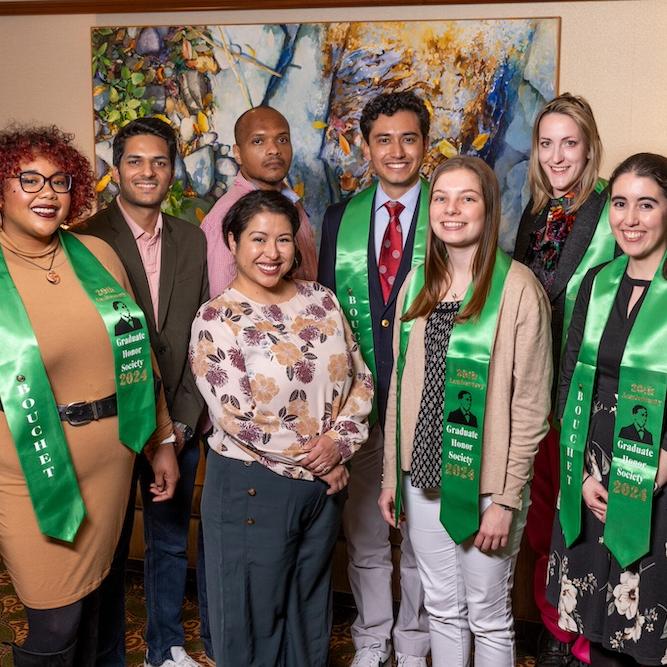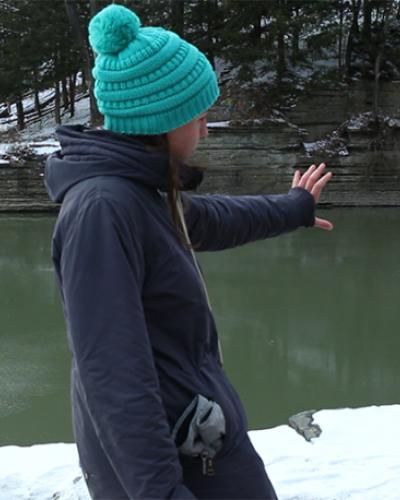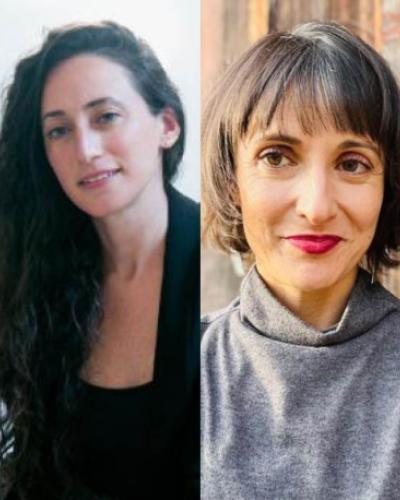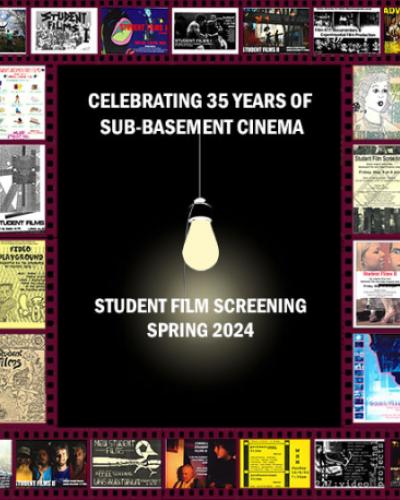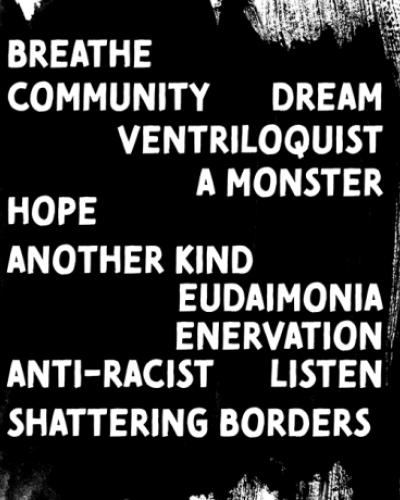Join The Department of (PMA) for the culmination of Making Theatre: Rehearsal & Performance. The class will present Pipeline by Dominique Morisseau (May 8 & 15), to stream as a filmed stage play, and Town Hall by Caridad Svich (May 7), to stream as a live reading with audience engagement. Reserve your free ticket(s) at schwartztickets.com.
Students in the class had the rare opportunity to “go window-shopping” and select pieces that spoke to and excited them, a process that the dramaturg Abbey Crowley ('21) called "amazing to witness." They spent the beginning of the course reading and discussing different materials until they settled on Pipeline and Town Hall and began rehearsals. As a result, students were enthusiastic, feeling true ownership of the productions that they had so carefully elected.
The group wanted to work with plays by BIPOC writers. Jasmine Scott ('21), a student in the class, said “this experience was specifically driven by the desires, dreams, and lived experiences of students of color—and it shows.”
They found that "a high correlation of those works are incredibly tragic," which contributed to the selection of Town Hall because it has "silly moments and fun moments, and it's about uniting and collaboration," according to Crowley. Co-instructor Carley Robinson ('20) introduced the play, which "hit her deeply" when she saw it performed by UC San Diego. "It’s a conversation with the audience about what it means to be connected—what are the things we think about as people that we don’t get to sit and talk about all the time—and, since COVID, what is it to connect with the audience as a theatre-maker when they're not in room and to engage virtually.”
Students echoed the collaborative spirit of the work. Jenniviv Bansah ('23) said "to me, the show feels like an out-of-body experience, where we are trying to figure out how to be in a space together and what we can contribute to that space. It's exciting because we get to define the space, make it our own, and live in the experiences this space provides." Anusua Nath ('23) called both shows important and topical, and noted that Town Hall "tackles the process of recovering after a major event has happened. Even though it's not meant to represent therapy, the idea of a town hall encourages talking through feelings and thoughts, and that is something that can definitely be applied to current times."
PMA professor and co-instructor Beth Milles introduced Pipeline, a piece she had found students gravitated towards in a previous course (PMA 2800). Robinson said "Beth is drawn to the language and poetry of the piece," which also resonated with students and "centers education and a mother, a black woman who is doing her best to love and care for her kid," an experience which not everyone has directly, but which many can understand in relation to their own family situations. Students in this course also gravitated towards the piece, and had a lot to say about it.
Corey Braxton ('21) said "this show is important to me because it tackles concepts that are so relevant to me… the social standards of how one should behave in school, the ways in which parent-child relationships operate, and issues of race and class." Trence Wilson-Gillem ('21), who plays the son, said "Pipeline means a lot to me because I can personally relate to Omari who I was honored to play. Growing up I had a lot of anger issues so I can understand where Omari is coming from. Had I been put in a similar situation my life could have turned out vastly different than what it has. This show is important because I feel like not many people are talking about the school to prison pipeline that is still very much in place. A lot of times people see the actions of children, especially Black children and other children of color, and isolate whatever it is they did without addressing the root causes or even talking to them to figure out what was going on in their lives."
Working with COVID-19 regulations had its unavoidable effect on the class. Scott remarked, “I never thought I would say this about Zoom, but there is something about logging on and seeing a bunch of students who look like you and share similar experiences that was easily the most healing part of my week. Watching theatre sprout back up via plexiglass filming made me feel very, very lucky." Braxton noted that “I'm more used to very physically intensive styles of acting, and it was an adjustment shifting to acting focusing on the voice and being so far away from other actors." Rehearsals represented a fortifying counterpart to social distancing, and Bansah expressed that "it's always refreshing walking to Schwartz, rehearsing lines together as a team and bonding with each other.” As in many arenas, it also allowed for a more “human first” approach which Robinson praised. She said they were able to rethink what makes a feasible rehearsal schedule in consideration of the many demands on students’ time, competing due dates, and the fact that some students have to work regular jobs on top of their classes. “To produce work seeing people as whole people is something we’ve tried to do a lot more this semester and has been transformative.”
Robinson said the class, an “experiment” within an academic year that has itself been an experiment, shows that “the talent will come if you give them their stories to do.” She observed that there were enough “black and brown and non-white people in our class to the point where we can do two full productions that center non-white voices. It’s not for a lack of people who are interested in doing this work.” She said it was “healing” to behold, especially as a recent alumna, because a lot of the students were first-timers whose “intro to a mainstage project is being surrounded by people who look like them.”
Robinson concluded with a motivating imperative: “I want the department and the world to know there is an abundance of talent and people will show up when they feel like they are being seen and heard, and that is on people to look and listen. We have lots of challenges, this is by far not the end. Don’t get lazy!”

